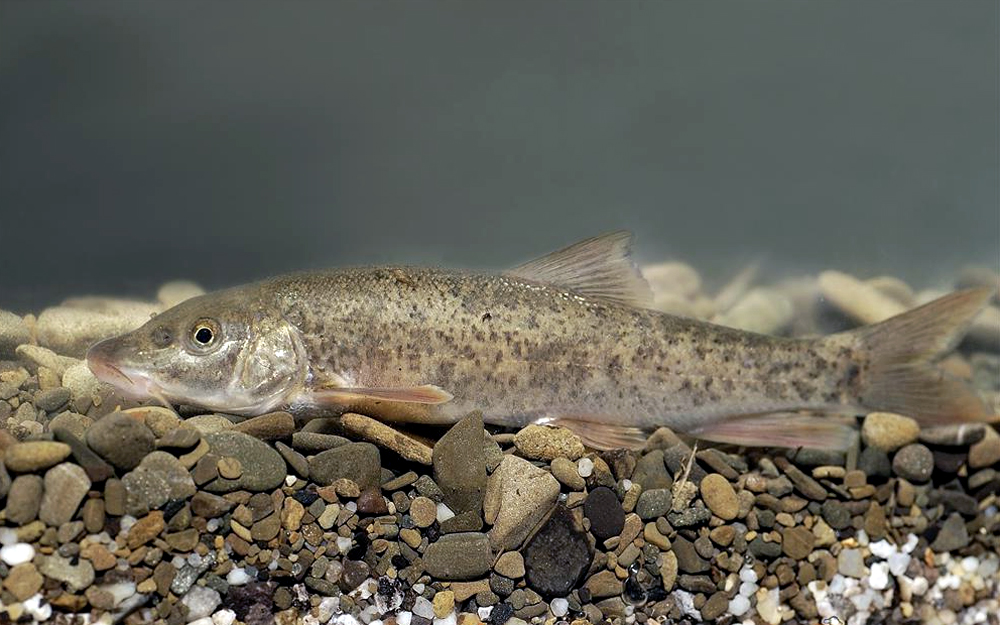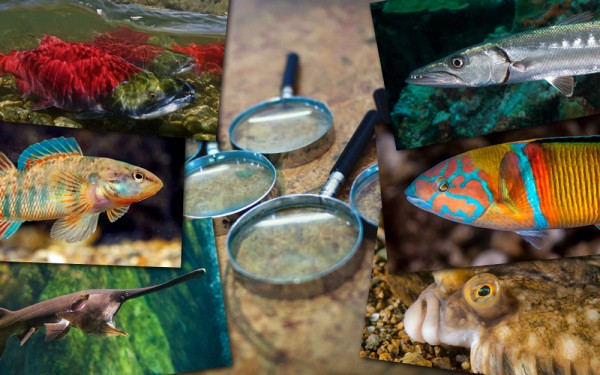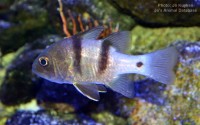Carpathian barbel
(Barbus carpathicus)

Classification
Europe: Tisza system (Danube drainage), from Hron to Someş sub-systems, occasionally reaching to eastern Austria; upper Vistula drainage in Slovakia and Poland; Wierzyca system (lower Vistula drainage, Poland); upper Dniestr drainage in Poland and Ukraine.
Max length : 27.0 cm SL
Differs from its congeners in Danube drainage and northern central Europe by having the following characters: last simple dorsal ray weak, not serrated posteriorly, segmented on its entire length; lower lip thick, with a median lobe; 8-11 scale rows between lateral line and dorsal origin; 8-9 rows of scales between lateral line and pelvic origin; top of the head plain; cheek and opercle unspotted or with very few small spots; paired fins unspotted, rays unpigmented or with few dark pigments not forming dark bars; body plain with faint dots and blotches slightly darker than background; caudal fin unspotted or with spots smaller than pupil diameter.
However, these characters may be of little use when differentiating this species from Barbus balcanicus and Barbus petenyi in the field as identification of Barbus carpathicus is based mainly on mtDNA characters.
Inhabits fast to moderate flowing premontane and montane streams and small rivers with gravel bottom. Most abundantly found in shallow rapids and riffles during summer and moves to deeper places in winter. Larvae and juveniles live on the bottom in very shallow shoreline habitats and leave the shores for faster-flowing waters as they grow. Feeds on a wide variety of benthic vertebrates and algae. Spawns in fast-flowing water (0.8-1 m/s) of shallow riffles with depth 0.5-0.8 m.










